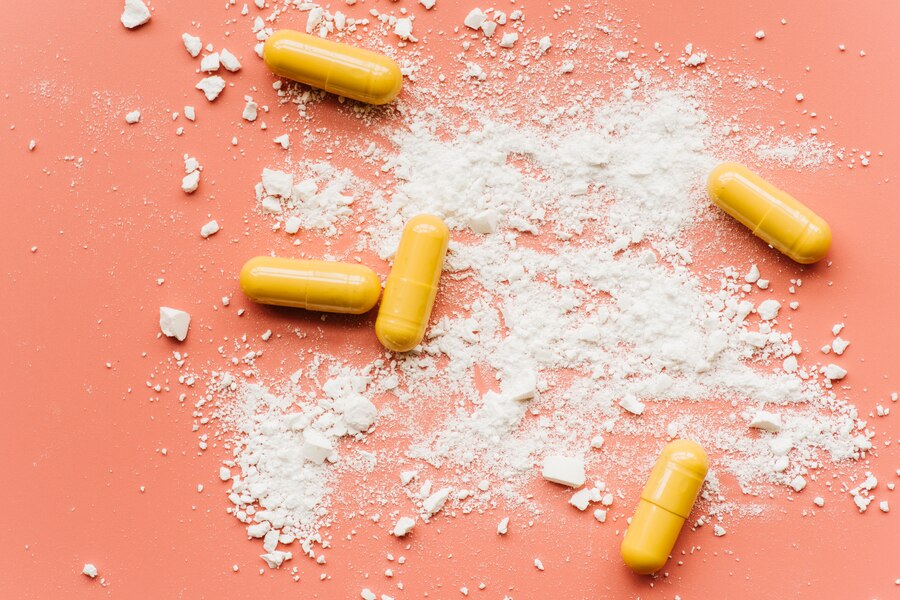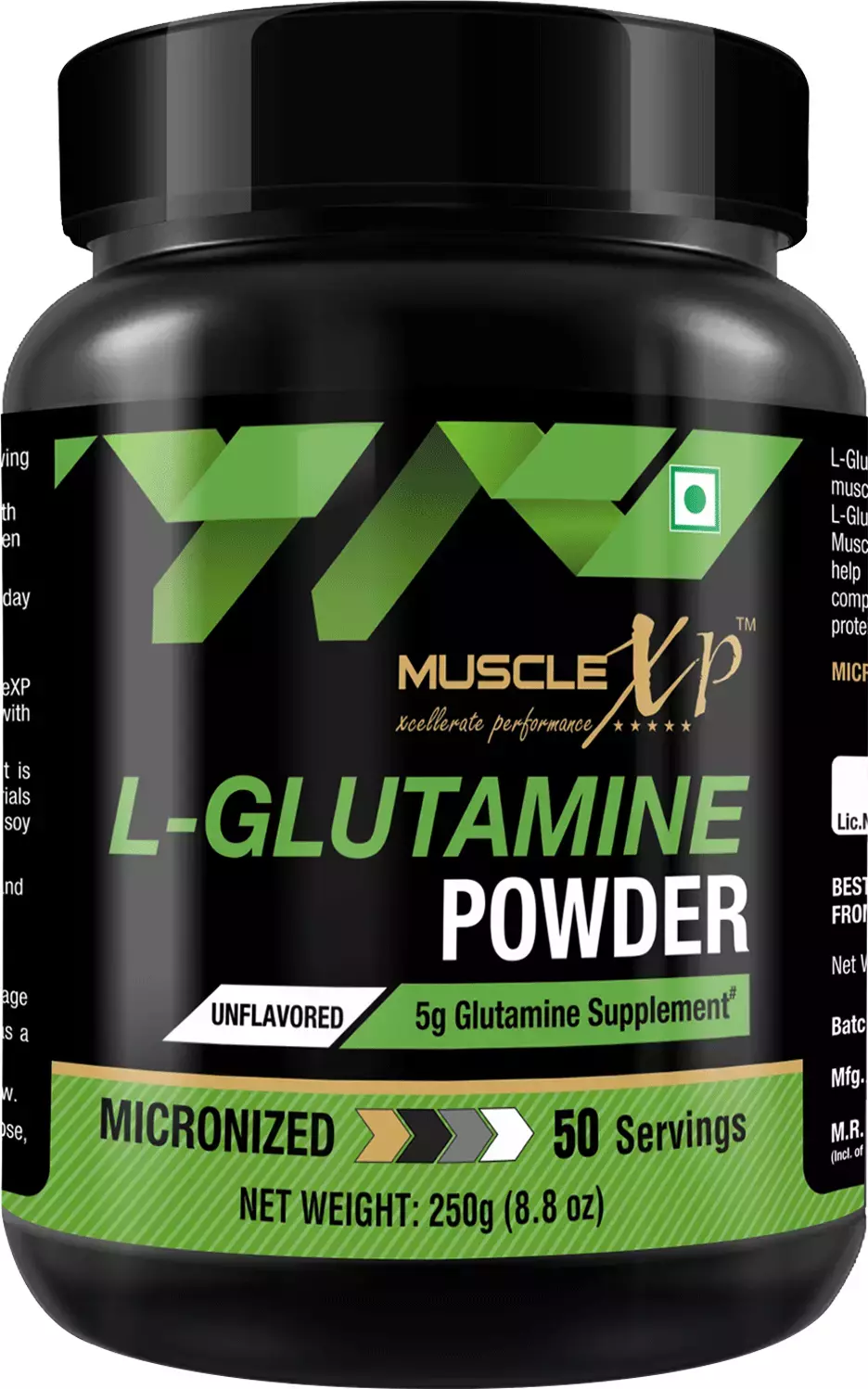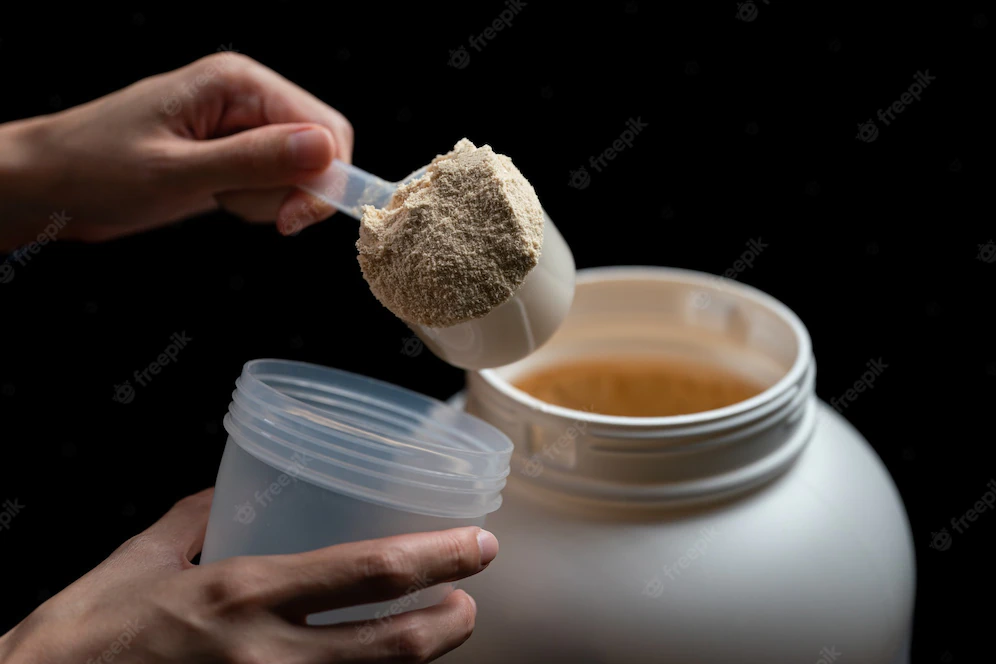If you too are somebody who’s hitting the gym daily or plans of so, you cannot be unaware of the “conditionally essential” supplement Glutamine.
So, what actually is this Vital thing?
An Amino acid 🙂
Glutamine is the most frequently present free amino acid in human blood at concentrations of approximately 500-900 µmol/l. It is considered a conditionally essential amino acid. Essential amino acids cannot be made by the body and must be obtained from the diet. The body may no longer produce it in certain disease states, such as prematurity or severe catabolic stress. plays. This amino acid is used to remove excess ammonia, a toxic waste product from a deamination reaction, allowing toxic ammonia to be removed by the kidneys and combined with acids before being excreted. Glutamine is also necessary for the production of other substances in the body, such as glucose and other amino acids.
It is primarily made in muscles and distributed to various organs in the body through the bloodstream. Normally, the body produces sufficient amounts of glutamine for normal bodily function, but certain conditions such as injury, surgery, prolonged stress, or infections can cause glutamine levels to drop. In cases like these, Glutamine supplements may be prescribed if the body needs more glutamine than it naturally produces.
But where do you get it naturally?

Although some plant sources, such as white rice and corn, have a large percent of protein made up of glutamine, they have fairly low protein contents overall. Thus, meat and other animal products are the simplest ways to get high amounts of it. Unfortunately, the exact glutamine content of many specific foods has not been studied. However, because glutamine is a necessary part of proteins, virtually any food containing protein will contain some glutamine. Now you know where to nourish your body with glutamine before you need supplements!
Dosage Affair!

L-Glutamine supplementation is usually dosed at 5 g or more. Higher doses are not recommended due to excess serum ammonia. The lowest dose found to increase serum ammonia is 0.75 g/ml.
Due to the relative low efficacy of glutamine supplementation for increasing muscle mass, the optimal dosage is unknown. (as seen in low protein intake or veganism).
How is the Supplement Significant?
When the body is subjected to extreme stress, such as surgery, injury, or infection, the hormone cortisol is released into the blood. This increased cortisol level can reduce the amount of glutamine stored in the body. It has also been shown to strengthen the immune system and reduce infections, especially after surgery.
Training for endurance events like marathons can lower levels of glutamine in the body, and it’s common for athletes to catch colds after such events. One study showed that glutamine reduced infections in athletes after competing in high-intensity events.
Actual Cons
Helps increase muscle mass and tone body tissue.
It also helps burn body fat in overweight people, resulting in less tummy, improved physique, and promotes lean tissue.
Glutamine speeds up the healing process of wounds, open wounds, and injuries. It also prevents further infection of wounds after surgery.
When the body experiences a traumatic event such as a burn or injury, it uses more glutamine than is produced by muscle stores, which prolongs wound healing. Adding an L-Glutamine supplement to your diet will speed up the process.
1. It can also reduce pain after exercise.
2. Taking glutamine supplements reduces the release of cortisol components and reduces stress in individuals.
The second side of the coin?
Artificial glutamate can cause psychosis in people suffering from mania.
Glutamine can exacerbate cirrhosis conditions People with this condition should avoid taking supplements.
Glutamine has no side effects in some people, but dietary supplements can exacerbate serious liver conditions associated with difficulty thinking and many confusions.
Taking large amounts of dietary supplements may increase the risk of seizures.
Glutamine interacts with lactulose compounds that are essential for reducing ammonia in the body. Taking dietary supplements with lactulose reduces its effectiveness.
Consuming high levels of glutamine affects chemicals in the brain, making medications used to treat seizures less effective.
How Beneficial is it in bodybuilding?
Glutamine has several benefits for bodybuilding as it is directly involved in protein synthesis. This means that extra stores of glutamine prevent your muscles from being used for energy by your body, which is a common result of intense training and exercise.
Glutamine can speed up the recovery process after strenuous exercise.
Glutamine for muscle soreness can help curb this problem and help you recover faster.
Glutamine is also known to increase the production of growth hormone in the body. supports muscle growth.
When to consume and what aids to expect?
The best time to take glutamine for building muscle is immediately after training, usually 30 minutes after finishing for efficient nutrient absorption. When a dietary supplement is taken after exercise, it is quickly absorbed by the body. Bodybuilders and athletes who train hard take glutamine supplements for their ability to repair muscle. Glutamine intake after strenuous exercise improves muscle protein synthesis. During training, many micro-tears appear in muscle fibers. Glutamine intake benefits bodybuilding by repairing torn muscles and preventing further muscle damage.
With regard to glutamine supplementation, there is evidence that plasma glutamine increases markedly in response to glutamine supplementation within 30 minutes after supplementation, returning to baseline levels approximately 2 hours after glutamine administration. A dose of 30 g has been reported to be tolerated (no side effects) and harmless to humans.
Character in fitness and sports?
Glutamine was first supplemented primarily due to its immunomodulatory capacity. However, because this amino acid exerts a variety of biological activities, glutamine has been studied in sports nutrition beyond its effects on the immune system and has several properties attributed to this amino acid.
Worth including in a daily plan?
Yes, but with conditions.
It is considered a “conditionally essential” amino acid. This means that the average inactive person with a generally healthy diet does not need to supplement with glutamine. It is also found naturally in foods such as beans as glutamic acid.
L-Glutamine supplementation is generally considered safe for most people, but there are some that should be avoided. Those with kidney disease, liver disease, or Reye’s syndrome, a serious condition that can cause swelling of the liver and brain, should avoid taking L-glutamine supplements.
Additionally, certain types of tumor cells feed on L-glutamine and proliferate.
Therefore, cancer patients or those at high risk of cancer may be advised to avoid L-glutamine supplements.
If not this, what alternative?
L-alanyl-L-glutamine supplementation might be used as an alternative to increase glutamine availability The best option still remains taking it in natural forms,
sources being eggs, white rice, tofu, corn and skim milk. Other supplements with similar benefits as of glutamine are Iodine, Vitamin A, C and K.
The bottom line being, nourish your immune system with glutamine supplementation once a proper consideration of your health and physical state is accomplished.
LET’S GET FIT!!




